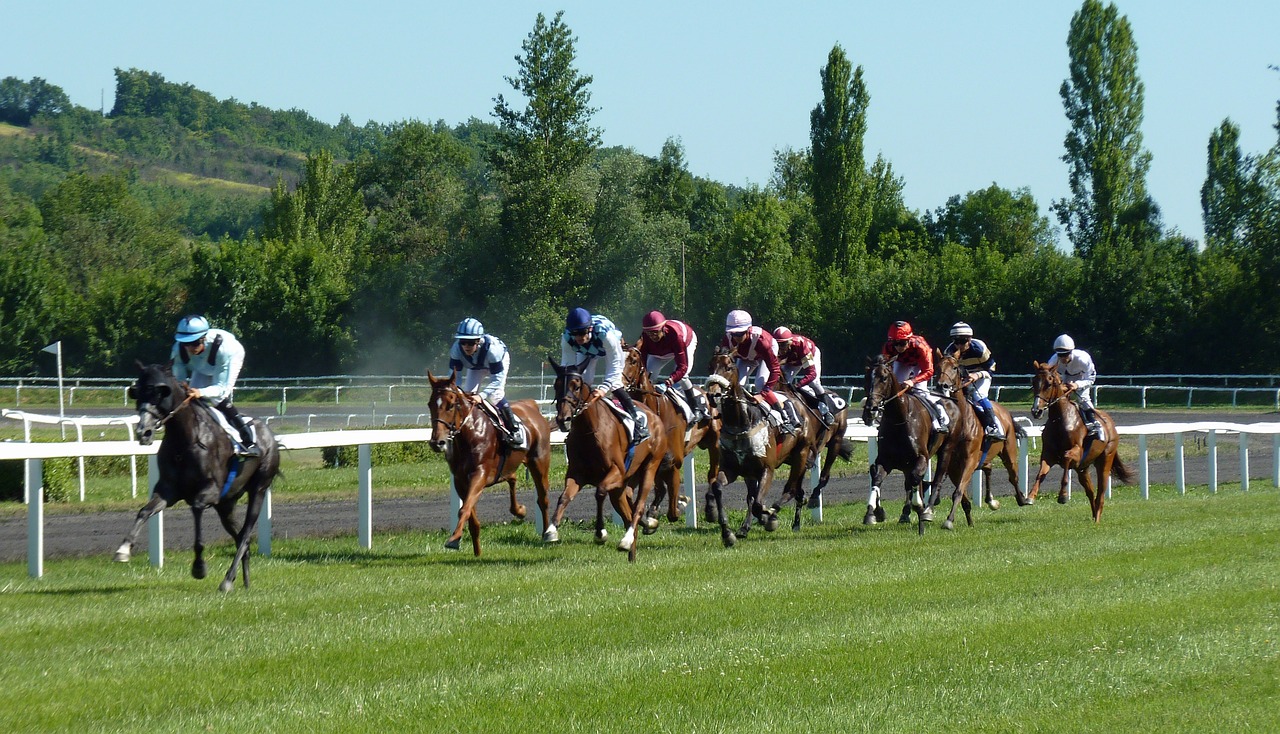Horseracing is the second most popular sport in the UK. Its local origins date as far back as 200 AD. Remnants of horseraces from that time were found in the north of the country near Yorkshire. At that time, however, saddles were still not used. They became popular approximately 400 years later. From then on, horseracing really took off. Join us as we explore the exciting history of the sport in the paragraphs below!
How It All Began
In the early days of England, racing with horses was used as a way to showcase the animal’s abilities when it was being sold. The first known racing contest was recorded during the reign of Richard the Lionheart. The award was £40, and the racecourse was 3 miles long. The riders were knights.
Later on, the infamous Henri VIII imported horses from Italy and Spain, who would also occasionally race. James I and his successor Charles I also had a strong interest in horses and sometimes sponsored racing meetings.
The First Organized Races
While people would still race as a form of entertainment in the early centuries, organized horseracing in England became popular in the Middle Ages. The first organized races were called the King’s Plates. They were inaugurated by Charles II, who was known as “the father of the English turf.” The King’s Plates awarded prizes to the winners.
Under Charles II’s reign, Newmarket became known as the headquarters of English racing. In addition, in his time, the first horseracing rules were installed. They were quite different from what we know today. The horses had to be six years old. They carried 168 pounds while running a 4-mile racetrack. The winner was the horse that finished two heats first.
The Match Races
The earliest horseracing format was the so-called “Match races.” They were carried out between two or at most three horses. The purse served as a simple wager, with bets based on the “play or pay rule.” The latter meant that if the owner of a horse withdrew, they lost the purse.
The Origins of Open Field Racing
By the mid-18th century, horseracing in England significantly developed. It became popular among noblemen and ordinary people alike. That is how the need for larger running fields. In addition, a new, more modern, set of rules was created. For instance, to enter a race, a horse had to meet certain criteria, such as age, sex, birthplace, previous performance, and more. The owners also had to comply with certain qualification rules.
Racing Types
There are two major racing types – Flat Racing and National Hunt Racing. We will explain in detail each of them below.
Flat Racing
When the word “horseracing” is mentioned, most people think of flat racing. It started a couple of centuries ago at the Kiplingcoates Derby and Newmarket Town Plate. In the 18th and 19th centuries, several flat races originated that is now known as the five British Classics. These are the 1,000 Guineas, 2,000 Guineas, The Oaks, The Derby, and the St. Leger.
The 5 British Classic races are quite different from one another, which makes them all the more entertaining. Besides, they have also kept a lot of their original rules and composition. In addition to these, the Royal Ascot is the largest and most important flat racing festival in Europe.
National Hunt Racing
National Hunt Racing is very popular in Ireland and has also become a significant part of the British horseracing landscape. While the name might suggest otherwise, National Hunt Racing is actually hurdle and steeplechase racing.
The National Hunt Races involve all sorts of obstacles placed in front of horses that they need to surmount and continue racing. Some of these may include wooden and metal fences, water jumps, hedge jumps, and more.
Racecourses in the UK
There are 60 racecourses in the UK today. Some of them were built in the 1920s or even earlier. Only six of them are all-weather, whereas the rest are turf. Below is the list of the all-weather tracks
- Chelmsford City
- Kempton Park
- Lingfield
- Newcastle
- Southwell
- Wolverhampton
Popular Horseracing Festivals
The UK is the home to numerous horseracing events and festivals. Some of the most popular ones include the Cheltenham Festival in March, the Epsom Derby Meeting and the Royal Ascot in June, July’s King George Day, Newmarket’s October Meeting, and more. These events gather large crowds of horseracing enthusiasts from all over the world. Great Britain has always been and remains to this day one of the world’s top destinations for equestrian action.

